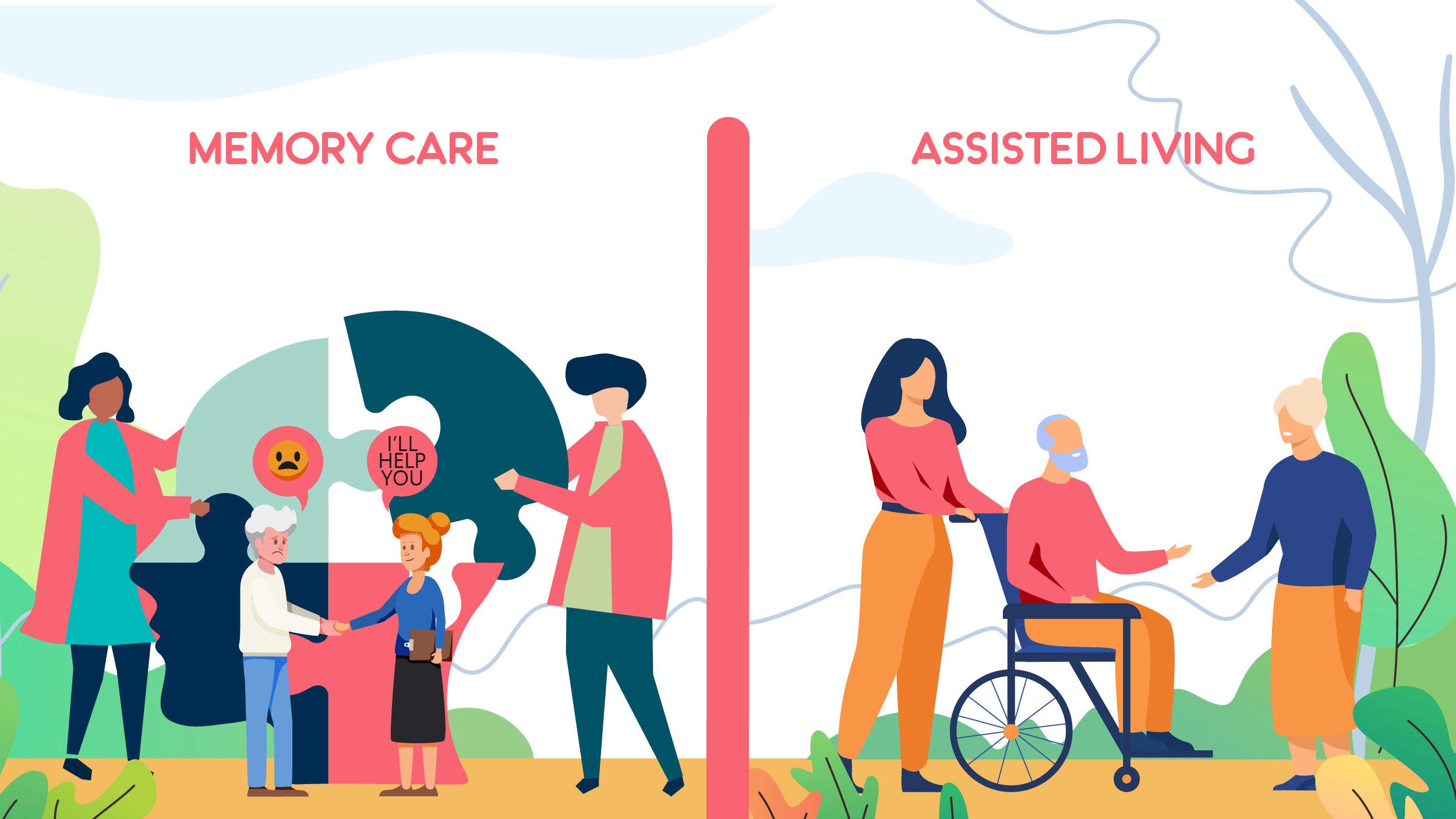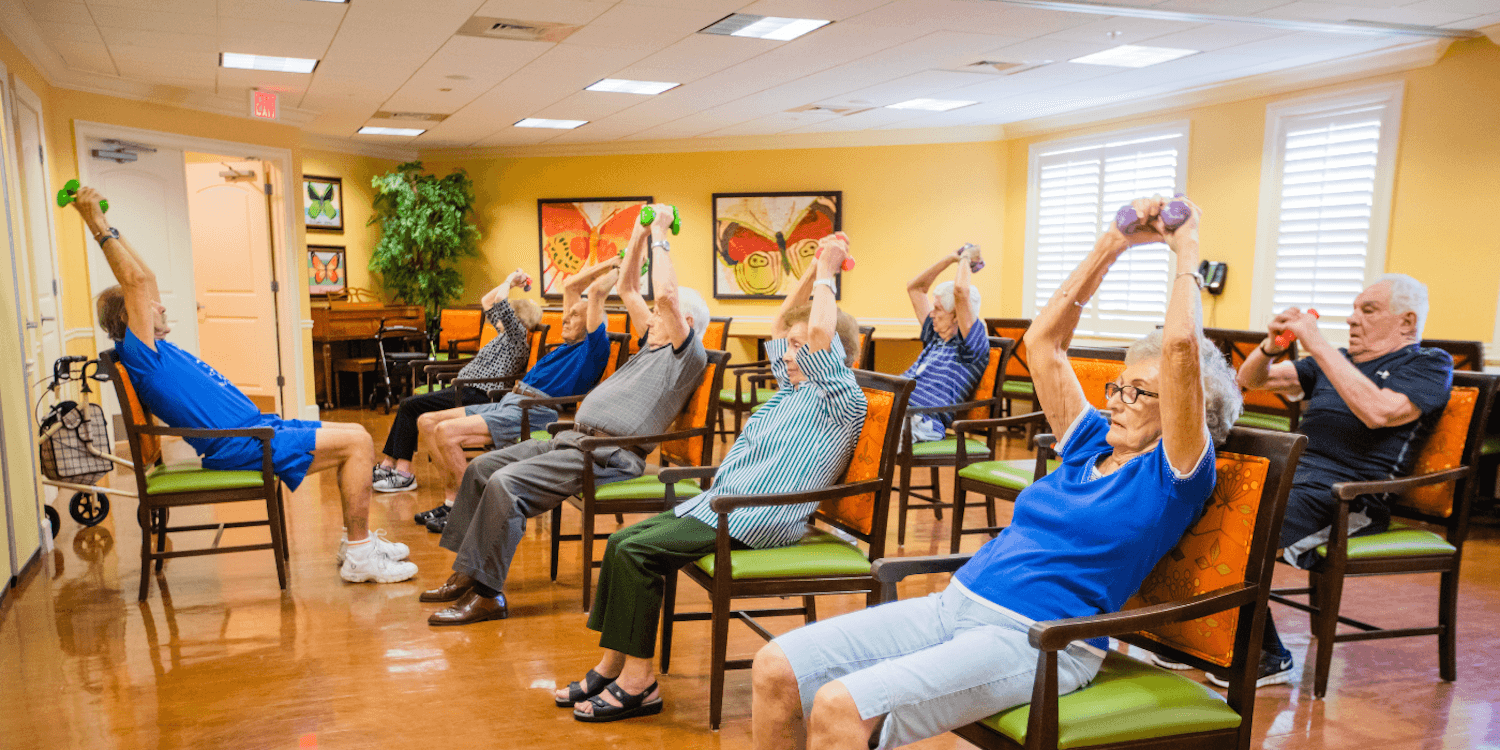The Benefits of Choosing Specialist Alzheimers Care Charlotte Facilities
The Benefits of Choosing Specialist Alzheimers Care Charlotte Facilities
Blog Article
Developing a Safe and Helpful Environment for Alzheimer's Treatment
The creation of a supportive and risk-free environment for people with Alzheimer's is vital in improving their top quality of life. This includes not just physical adaptations within the home, such as decreasing hazards and incorporating acquainted components, however additionally the application of structured regimens and meaningful tasks that accommodate their cognitive requirements. Comprehending the psychological and psychological dimensions of treatment can dramatically impact their sense of security and connection. Checking out these complex approaches can expose critical insights right into reliable caregiving strategies that may transform the everyday experiences of both caretakers and individuals.
Recognizing Alzheimer's Demands
Regularly, individuals with Alzheimer's illness exhibit a variety of needs that require tailored approaches to care. As the condition progresses, cognitive decline shows up in numerous means, impacting memory, reasoning, and even the ability to perform day-to-day tasks. Caretakers have to identify these progressing requirements to offer suitable support and ensure a greater high quality of life for those affected.
One critical facet of understanding Alzheimer's requirements is acknowledging the significance of routine and knowledge. Individuals often find convenience in well established patterns, which can decrease anxiousness and complication. Caregivers ought to make every effort to produce structured day-to-day routines that incorporate meaningful tasks aligned with the individual's capacities and rate of interests.
Additionally, reliable communication is critical. Individuals with Alzheimer's might have a hard time to share themselves or comprehend intricate language. Caregivers must use straightforward, clear language, use non-verbal signs, and method active listening to promote understanding and link.
Caregivers ought to motivate involvement in neighborhood activities or family events, promoting a sense of belonging and purpose. Comprehending these diverse needs is vital for developing an encouraging care atmosphere.
Creating a Safe Home
Producing a secure home for people with Alzheimer's disease is vital to advertising and minimizing threats independence. Guarantee that paths are well-lit and clear, as proper lighting decreases disorientation and boosts movement.
Incorporating adaptive attributes is likewise crucial. Mount grab bars in restrooms and near staircases, and consider making use of non-slip mats in damp areas. In addition, utilizing different colors for walls and floors can help in identifying areas, helping to alleviate complication.
Experience is necessary for individuals with Alzheimer's. Customizing the environment with familiar things and photographs can strengthen a sense of belonging and protection - Alzheimers Care Charlotte. It is additionally beneficial to have actually a marked area for everyday tasks, such as analysis or crafting, which can give structure to their day
Finally, carrying out a secure outdoor area enables safe exploration while getting in touch with nature. By attentively making the home environment, caregivers can considerably improve the top quality of life for people living with Alzheimer's disease.
Enhancing Communication Abilities

Non-verbal communication, including face expressions, gestures, and touch, plays an important role in conveying compassion and understanding. Maintaining eye contact and a tranquil attitude can improve the convenience level of the person, advertising a feeling of security.
Moreover, it is necessary to exercise active listening. This entails being fully present, revealing patience, and permitting the person to express themselves without disruption. Repeating may be needed; caregivers need to be prepared to review subjects or inquiries, as individuals with Alzheimer's might deal with memory recall.
Additionally, utilizing aesthetic aids or signs, such as photographs or acquainted objects, can assist in recognition and interaction. Eventually, boosting communication abilities is concerning constructing trust use this link fund and creating this content an environment where people really feel heard, valued, and recognized, consequently enhancing their top quality of life.
Encouraging Social Interaction
Cultivating meaningful social interactions can significantly boost the well-being of individuals with Alzheimer's condition. Involving with others not just helps fight sensations of isolation however likewise promotes cognitive function and emotional health and wellness. Structured social tasks, such as group games, arts and crafts, or songs treatment, create chances for homeowners to connect with peers and caregivers, which can result in enhanced state of mind and decreased anxiousness.
Producing a welcoming setting that encourages socialization is essential. This can be achieved by organizing common areas that assist in interaction, such as cozy seating areas or task spaces. Additionally, incorporating culturally relevant and familiar tasks can urge and spark memories participation, allowing individuals with Alzheimer's to feel even more linked to their past experiences.
Furthermore, caregivers ought to be trained to identify and advertise social involvement amongst homeowners. Straightforward motions, such as starting conversation or helping with small group discussions, can aid people feel valued and consisted of. Regularly set up social events should be consistent yet adaptable, fitting varying degrees of capacity and passion. By focusing on social interaction, we can considerably improve the lives of those coping with Alzheimer's, fostering a sense of neighborhood and belonging.
Sustaining Caretaker Well-being

To sustain caregivers, organizations ought to use normal training and instructional sources to enhance their understanding of Alzheimer's disease and caregiving methods. Supplying accessibility to reprieve care services enables caretakers to take needed breaks, lowering stress and fatigue - Alzheimers Care Charlotte. Additionally, fostering a community through support system can help with emotional sharing and the exchange of functional advice among caregivers, producing a network of shared support
Mental wellness sources, such as therapy solutions, can additionally be essential in resolving the psychological toll caregiving can take. By focusing on caretaker well-being, we develop an even more lasting caregiving atmosphere that not only benefits the caregivers themselves however also enhances the total top quality of treatment gotten by individuals with Alzheimer's. Ultimately, supporting caretakers is an essential part in cultivating a thoughtful and efficient treatment setting.
Conclusion
Finally, the production of a encouraging and risk-free environment for people with Alzheimer's is vital to improving their lifestyle. By prioritizing security through thoughtful layout, promoting emotional health with familiar components, and promoting involvement with structured routines, caretakers can considerably influence the general experience of those impacted by this condition. Sustaining caretaker wellness is important, as it eventually adds to a more caring and effective treatment setting.
Repeating might be necessary; caretakers should be prepared to take another look at inquiries or topics, as people with Alzheimer's might struggle with memory recall.

Report this page